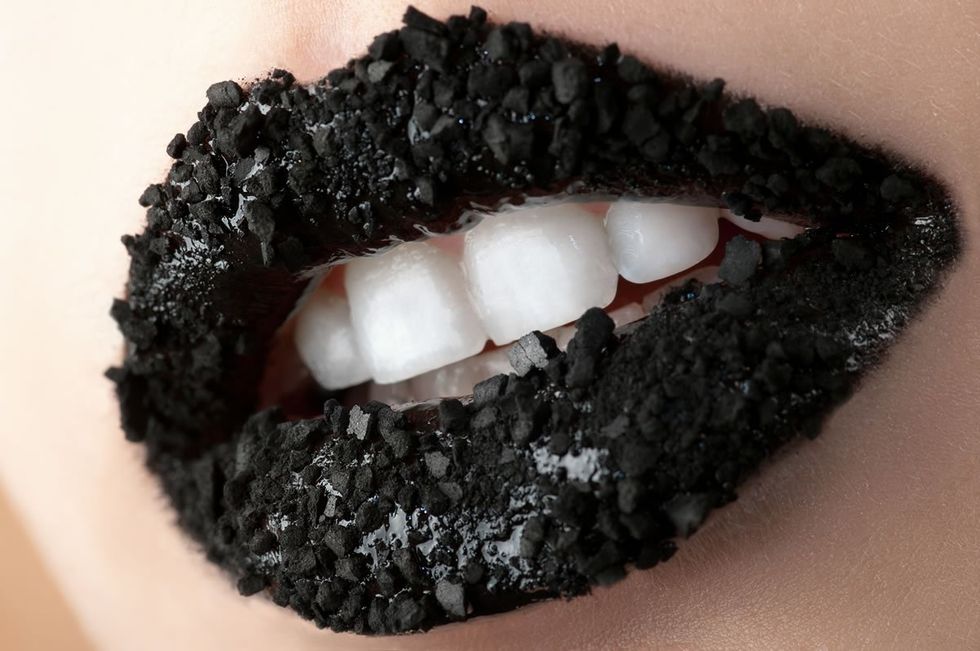Activated charcoal is the buzz word of the moment in healthy ingredients. We are starting to see it in everything from pressed juices to supplements to beauty products. And now we even see it in oral care. There are plenty of activated charcoal toothpaste's that claim to not only whiten your teeth but also eliminate bad breath.
Activated charcoal is often used in emergency rooms in treating overdose and certain kinds of poisoning. Since it's very porous, it is able to soak up the poison and prevent the stomach from absorbing it. Using this logic, some people claim that activated charcoal is also able to soak up the stains on our teeth.
But should you really use toothpaste with activated charcoal? Does this ingredient really detox and whiten teeth? We talked to a cosmetic dentist to get their opinion.
Should you use an activated charcoal toothpaste?
"Activated charcoal has been used for thousands of years on the body," says Alex Khabensky, DDS, a dentist from Brooklyn, NY. "I have patients who use these products and claim to obtain some benefits."
With that said, at this time there are no long-term studies on activated charcoal as an ingredient in toothpaste.
"The ability of charcoal to attract particles has been well studied in air filtering systems and hospital toxicology departments, but more research is needed to determine its safety when used in the mouth," says Dr. Khabensky. "We still don't know how charcoal affects the healthy oral bacteria or interacts with medication when swallowed."
If whiter teeth is your main concern, there are many home whitening kits or in-office teeth whitening treatments that will provide you with a brighter smile. There are even natural remedies such as swiping the inside of an orange peel over your teeth. Although using the natural approach will take longer to achieve the desired results, it's an overall safer method.
Things to know before trying charcoal toothpaste
One thing that all dentists agree on is that if you decide to use activated charcoal toothpaste, you should do so sparingly. Don't use it more than once a week and never use it for an extended period of time.
"It's a very abrasive ingredient and constant use will wear down the enamel on your teeth," Dr. Khabensky says. People with thin enamel or who have a lot of recession of gum tissue should avoid using charcoal toothpaste. Its abrasive quality may cause your teeth to become sensitive.
Only use charcoal toothpaste from reputable brands and pay attention to any unusual symptoms such as an increase in teeth sensitivity or bleeding gums. Stop using activated charcoal toothpaste immediately if you experience any of these symptoms and make an appointment with your dentist.









































